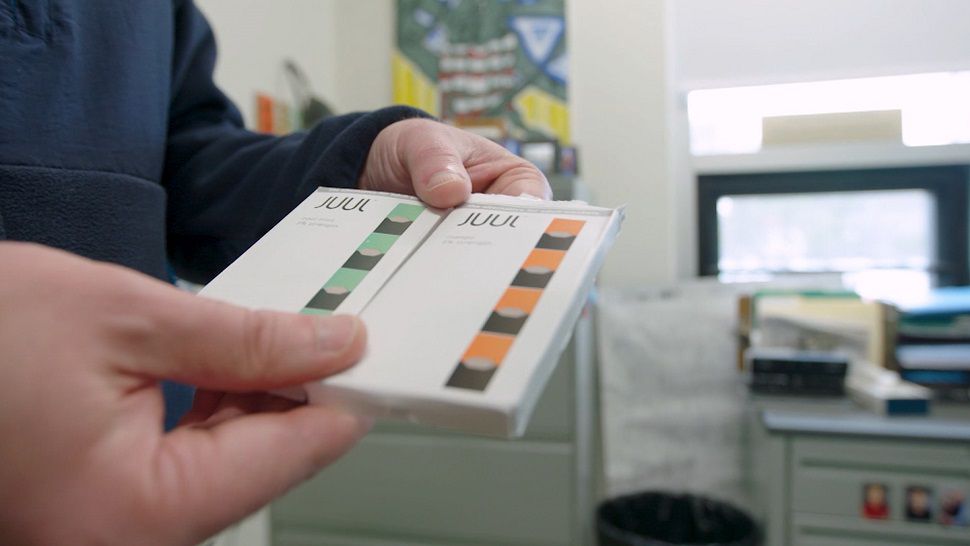DURHAM, N.C. — E-cigarette giant Juul will pay $40 million to settle a lawsuit accusing the company of marketing vape products to teenagers, North Carolina Attorney General Josh Stein said Monday.
The state sued Juul in May 2019 for advertising its vaping products to minors and misrepresenting how much nicotine is actually in its e-cigarettes. North Carolina has also sued other e-cigarette companies over similar allegations.
"North Carolina is now the first state in the nation to hold Juul accountable for its instrumental role in creating a youth vaping epidemic," Stein said from the steps of the Durham County courthouse Monday morning.
The lawsuit was set for oral arguments and a pre-trial hearing Monday.
Stein said his office and Juul agreed to a consent order to change how the company does business.
The attorney general said his office launched an investigation into the company after he started hearing from friends about how their kids became addicted to e-cigarettes.
"We found evidence that Juul designed, marketed and sold this product in a way that targeted young people, including teenagers," he said.
"Just talk to any high school principal in North Carolina and you will hear what a devastating problem this is," Stein said. He added that about one out of every five high school students in the state has used an e-cigarette in the past 30 days.
The United States Surgeon General and the commission of the Food and Drug Administration declared teen vaping an epidemic, Stein said.
“This settlement is consistent with our ongoing effort to reset our company and its relationship with our stakeholders, as we continue to combat underage usage and advance the opportunity for harm reduction for adult smokers," Juul said in a statement Monday.
"We seek to continue to earn trust through action. Over the past two years, for example, we ceased the distribution of our non-tobacco, non-menthol flavored products in advance of FDA guidance and halted all mass market product advertising. This settlement is another step in that direction," Juul said.
Juul faces similar lawsuits in other states.
Money from the settlement will go to help teens addicted to vaping and helping prevent more kids from getting addicted to the nicotine products.
Stein said Juul will not be able to sell flavors under the consent order without permission from the FDA. "It cannot sell mint, it cannot sell mango, it cannot sell creme brulle or any other flavor without specific authorization," he said.
The company will also be limited in how it markets and sells its products, including prohibiting advertising using social media "influencers" and outdoor advertising near schools. The company also agreed not to sponsor sporting events and concerts and stop most social media advertising.
Juul will not be allowed to use anyone under 35 years old in its advertising.
The company will also have to make sure it's only selling its e-cigarretts to adults online and at retailers. Juul also agreed to use underage mystery shoppers to see if retailers are selling to minors and sanction the stores that do.
"We look forward to working with Attorney General Stein and other manufacturers on the development of potential industry-wide marketing practices based on science and evidence. In addition, we support the Attorney General’s desire to deploy funds to generate appropriate science to support North Carolina’s public health interventions to reduce underage use," the company said Monday.



